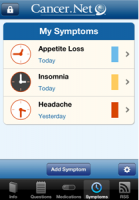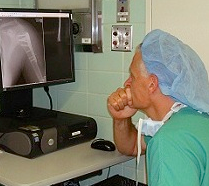 Just as smartphones are replacing books within the personal realm, electronic tablets are quickly taking the place of paper in doctors’ offices, and are doing so on a global scale.
Just as smartphones are replacing books within the personal realm, electronic tablets are quickly taking the place of paper in doctors’ offices, and are doing so on a global scale.
 Just as smartphones are replacing books within the personal realm, electronic tablets are quickly taking the place of paper in doctors’ offices, and are doing so on a global scale. Part I of this report discussed how we got here, and took a look at how the consumer-grade tablet market has entered the space.
Just as smartphones are replacing books within the personal realm, electronic tablets are quickly taking the place of paper in doctors’ offices, and are doing so on a global scale. Part I of this report discussed how we got here, and took a look at how the consumer-grade tablet market has entered the space.
Part II discusses The Waiting Room and the introduction of health tablets as a replacement to magazines making a patient visit more informative and efficient.
********************************************
As part I of this report noted, there seems to be some issue with consumer-grade tablets entering healthcare. As such, several smaller companies are gaining notoriety by producing tablets specifically for clinical settings, and even in waiting rooms. At February’s Startupalooza in Newark, New Jersey, 43 digital and eHealth startups pitched their businesses directly to six investors. Investor judges selected six companies to present their pitches to the audience, and two winners were chosen – with Epion Health taking the eHealthcare category.
Epion is a private company launching a mobile tablet geared toward enabling the patient visit to the doctor’s office to begin the moment they check in with the receptionist. Epion reports that the average wait time is 34 minutes – more than a half hour that can and should be spent making the visit more informative and efficient. Epion’s Smart Screen® lets patients view information about their condition while they wait, with peer-reviewed educational material from sources such as the Mayo Clinic. Patients can also download the material to their mobile device
The company also provides its preloaded tablets to doctors at no charge. Physicians can also use the Smart Screen® to access digital medical tools, utilize pre-loaded medical apps, and view results of health assessments. Epion has completed several successful trials funded by a major pharmaceutical company and is seeking $1 million to complete its pilot program.
The value of a patient reading targeted healthcare information instead of old golf magazines is obvious to most. According to experts, however this is a paradigm shift that may lead to new parameters of the healthcare complex-patient relationship. Healthcare ad spending is on the rise, and The New York Timesattaches some interesting figures to the issue. In the first six months of 2011, funds spent on advertising by American hospitals, clinics, and medical centers reached $717.2 million, a rise of 20.4% from $595.5 million in the same period of 2010, according to the Times.
Like hospitals, pharmaceutical companies are able to take advantage of tablets as a way to direct information at patients as well. The pharmaceutical industry spends upwards of $57.5 billion a year on promotion in the US, according to an NYU study, with 12.5 percent allotted to direct-to-consumer advertising, according to McGill University. And, according to an eMarketer report, US healthcare and pharmaceutical online advertising spending reached $1 billion in 2012.
Drug companies and healthcare providers thus spend billions of dollars targeting a general population, many of whom will never use their products. The tablet, however, presents the opportunity for a highly targeted ad campaign.
Considering that the proportion of adults who are online and have ever used the Internet to look for health information has increased to 88% in 2012, there is little doubt that information made available through these tablets will be valued by the patient. Patients can walk into appointments not only having been freshly educated about the health science regarding their particular conditions, but will have just been informed about drugs on the market to treat those conditions. Dr. Cindy Haines, health information guru and author of The New Prescription, believes tools that empower the patient this way will have a profound effect on righting the healthcare system.
The true value of these tablets will be measured by consumer reception. Thus for every statistic quoted, for every dollar saved, enterprises must also stay in touch with patient preference – sometimes as simple as a game or a piece of entertainment.
As such, some tablet companies have set out to present said content to patients through games that can be played during waiting room time, which “reward” patients for correct moves with factoids about specific diseases. What better way to become more health savvy than through tic-tac-toe?








